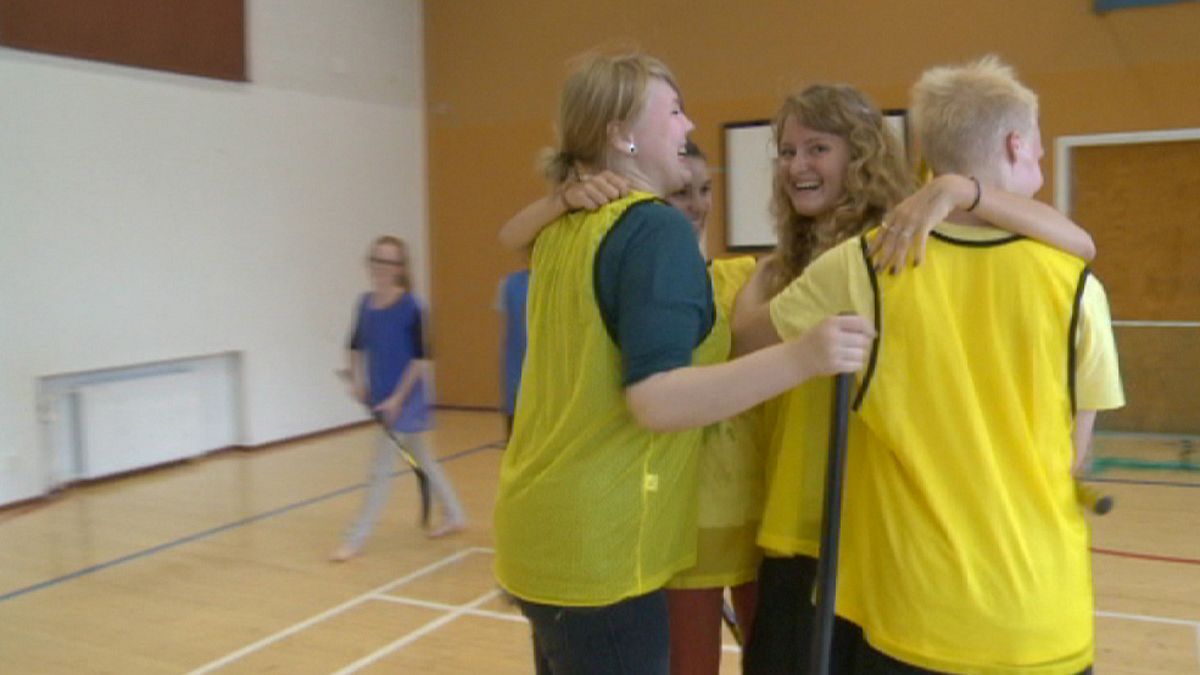Sixteen-year old Elea is off to school. But this isn’t any old school day for this young French pupil.
She has decided to move to Finland for a year to attend classes in English. The goal is both to improve her language skills and get a taste for something new.
Elea is not alone: her school mate Ana is also staying in Finland for a few months.
Jyvaskyla High School is partnered with the girl’s French Lycée and offers an English-language baccalaureate. But why go to Finland to learn English?
“I wanted to speak English perfectly,” says Elea. “I think I’ll be able to reach that goal in nine months. I also wanted to leave home. I love my family but I wanted to get away for a while. I think I will gain in maturity.”
Learning English in Finland – Why not? It can be expensive to study in Britain, the US or Australia, and the Nordics have always been known for their excellent grasp of the English language.
Elea also appreciates the cultural difference when it comes to education: “I think that school in Finland is very different,” she said. “They really help students, they encourage them to improve, whereas in France they only push those who are already top of the class, but not the others. Here they encourage everyone so they all do better at school.”
Elea’s stay is supported by the Comenius Individual Pupil Mobility scheme, a European initiative that allows secondary school students to spend between three and ten months at a host school abroad.
French teacher Ulla Aarnio’s mission is to ensure the well-being of the pupils during their stay. “In the beginning students are quite tired because everything is new, the language, the habits, the people, but then they get used to it,” she said.
Being a contact teacher means she plays a big part in helping the students integrate, whether it is assisting them with timetables or tests.
But there are some things the students have to learn for themselves. “There are differences for example in terms of looks,” says Elea. “It may seem like a detail but as I am staying nine months it is very important, so for instance, I saw someone with green eyebrows. In France, it would have made me laugh, but here it stresses me out a little.”
The most difficult part of the Comenius programme is finding the right host family. Luckily for Elea, there has not been any culture shock.
She has settled into her new life with ease, getting a taste of authentic Finnish living and cuisine.
“Just like any normal family we have breakfast together, then we go to school,” she told euronews. “In the evening we cook together, mother and daugher, like in France. Everyone eats what they want, it’s very relaxed, like in my family. I love it!”
In Finland, indoor field hockey is the sport of choice for many students, giving the girls another chance to step out of their comfort zone and try something new.
Among the players is Roosa Kasma, a Finnish student who is getting ready for her trip to France as part of the exchange programme.
“When I come back to Finland I’ll be a new person, I will be much more like an adult,” she says. “I will grow up. I think I’m going to be more confident about myself.”
Introduced in 2010, the Comenius exchange programme is growing in popularity. This year, more than 1,300 pupils will study abroad, bringing home not only new language skills but also a broader understanding of their European neighbours and the world they live in.



